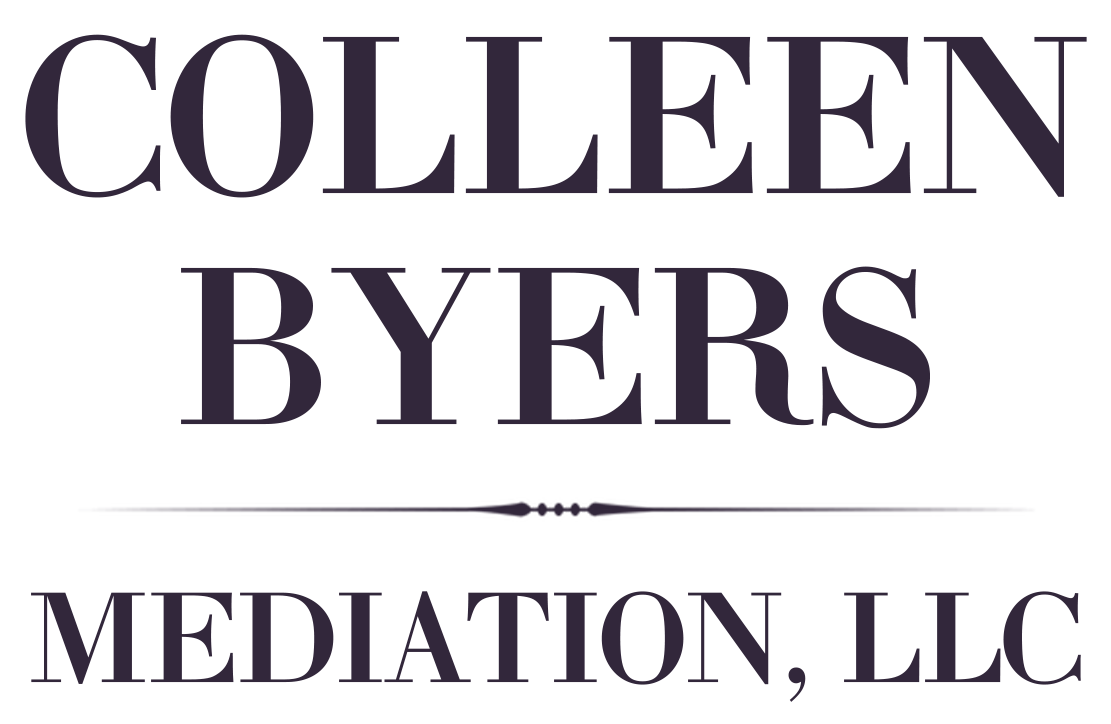5 Key Considerations for Mediation in Contested Guardianship Proceedings
Imagine this …
Scenario 1: Estranged siblings are fighting over who should make health and financial decisions for their cognitively declining parent.
Scenario 2: Children of dad do not trust dad’s second wife to make decisions for dad, especially when they believe she is just out to secure his money.
Scenario 3: Divorced parents of adult special needs child disagree about the adult child’s treatment plan and the best way to financially support the adult child.
Each of these scenarios, or a derivation thereof, find their way into lawyers’ offices and before the Clerk of Superior Court in the form of a special proceeding. Contested guardianship proceedings can be intense and fast paced. They are rife with family conflict and there is usually a time-sensitive need for a legal determination, whether that need is driven by financial or medical reasons.
North Carolina has a long history of encouraging and supporting lawyers to find judicially efficient and economical means of solving their clients’ legal problems. An underutilized but effective avenue to consider in contested guardianship proceedings is mediation.
1. Why Mediate a Guardianship Dispute?
Mediation is quick, private, and allows for more creative resolutions.
A. Quick.
When a guardianship matter will actually proceed to a hearing depends on several factors, including the size of the jurisdiction, the existing case load and schedule of both the hearing officers and the Guardian ad Litem, and the number of continuances granted. Depending on the circumstances, the parties and their counsel may be able to get to the mediation table months before a hearing. The expediency of mediation benefits clients who have little understanding of or patience for how slowly the wheels of the halls of justice actually turn. Additionally, a swift resolution minimizes the emotional toll of a contested proceeding on all interested parties, particularly the alleged incompetent, who is often particularly fragile.
B. Private.
Mediation is private and confidential, which is appealing to many clients, whether they are high net worth clients, there are sensitive issues involved, or they simply value their privacy. Unlike a hearing, there is no transcript of a mediation. On the contrary, any stenographic, audio, or video recording of the mediation process by any participant, either surreptitiously or with consent, is strictly prohibited under Rule 4(f) of the Rules for Mediated Settlement Conferences and Other Settlement Procedures in Superior Court Civil Actions. In addition to Rule 408 of the North Carolina Rules of Evidence, NCGS § 7A-38.3B(g) expressly provides, “[e]vidence of statements made or conduct occurring during a mediation conducted pursuant to this section, whether attributable to any participant, mediator, expert, or neutral observer, shall not be subject to discovery and shall be inadmissible in any proceeding in the matter or other civil actions on the same claim …” The statute does provide limited exceptions, including an exception that allows for a mediated settlement agreement to be presented to the clerk for approval, as discussed in section 3 below.
C. Creative.
Crafting a resolution through mediation allows the parties and their counsel an opportunity to better understand each other’s interests, and to find more creative and outside the box resolutions than a Clerk may consider. For example, the parties may agree to parameters regarding visitation with the alleged incompetent, which some clerks shy away from altogether but especially at the initial hearing. This could prevent future discord as well as limit the time and expense of future motions practice.
2. Who Can Request Mediation in a Guardianship Proceeding?
The Clerk, on his/her own motion, or any party, interested person, or fiduciary in the matter pending before the Clerk of Superior Court, may move for an order to mediate. See NCGS § 7A-38.3B; Rule 1(c)(3) of the Rules of Mediation for Matters Before the Clerk of Superior Court; AOC-G-300; and AOC-G-301. To facilitate a more economical, efficient, and satisfactory resolution of the matters within the clerk’s jurisdiction, the clerk has the discretion and authority to order that mediation be conducted in any matter in which the clerk has exclusive or original jurisdiction, except for matters under Chapters 45 and 48 of the General Statutes and except in matters in which the jurisdiction of the clerk is ancillary. See NCGS § 7A-38.3B(a) & (b).
As in Superior Court cases, once a guardianship is ordered into mediation, the parties may designate a preferred mediator, using AOC-G-302, or ask the clerk to appoint a mediator. Party designated mediators are selected by the parties and set their own rate of compensation. Court-appointed mediators serve at the court-appointed rate, which is currently $150.00 per hour, plus a one-time administrative fee of $175.00.
3. Who Can Approve a Settlement?
Although it may seem obvious, do not forget that the interested parties can never stipulate to incompetence. Even when the only thing quarreling siblings can agree upon is the fact that elderly mom or dad is incompetent, they cannot stipulate to incompetence. They may, however, privately agree not to object to any finding of incompetence by the Clerk, who still must make findings of fact, based upon the evidence presented—even if that is derived solely from the Verified Petition and the Report of the Guardian ad Litem—that support an adjudication of incompetence.
Any agreement reached in a guardianship proceeding requires written approval by the Clerk of Superior Court. NCGS § 7A-38.3B(i)(2) provides, “[i]n matters before the clerk in which agreements are reached in a mediation conducted pursuant to this section, or during one of its recesses, those agreements shall be treated as follows … In all other matters before the clerk, including guardianship and estate matters, all agreements shall be delivered to the clerk for consideration in deciding the matter.” In fact, Rule 4(b)(2) of the Rules of Mediation for Matters Before the Clerk of Superior Court requires all written agreements reached in guardianship matters to include the following language in a prominent location in the document: “This agreement is not binding on the clerk but will be presented to the clerk as an aid to reaching a just resolution of the matter.”
4. Who Pays the Mediator’s Fees?
NCGC § 35A-1116(c1) provides that mediator fees and other costs associated with mediation shall be assessed in accordance with NCGS § 7A-38.3B. Pursuant to NCGS § 7A-38.3B(f), costs of mediation shall be borne by the named parties, interested persons, and fiduciaries ordered to attend the mediation. Absent agreement to the contrary, costs are apportioned pro rata among those ordered to attend mediation. If everyone agrees that the mediator’s fees should be paid from the respondent’s estate, then a written order from the Clerk making specific findings of fact justifying the taxing of the mediator fees and costs to the alleged or adjudicated incompetent’s estate is required. Such a provision can be found in AOC-G-304 – Order for Apportionment of Mediator Fee in Matters Before the Clerk of Superior Court.
5. How to Find a Clerk of Court Certified Mediator for Your Guardianship Matter.
The North Carolina Dispute Resolution Commission is responsible for numerous different mediation programs. One of the most well-known programs is the Superior Court Mediation Program, but there is a separate program, requiring additional training and certification, to mediate matters pending before the Clerk of Superior Court, including guardianship and estate proceedings. Through its website, the North Carolina Dispute Resolution Commission maintains a searchable list of mediators who are certified in the Clerk Mediation Program.
Mediation of contested guardianship matters is an opportunity for each party and interested person to tell their side of the story to a neutral facilitator who will listen intently and empathize with their respective struggles and frustrations. Mediation offers a chance for information to be exchanged and new insights gleaned that just might be the crack in the door needed to find a resolution everyone can make peace with.





